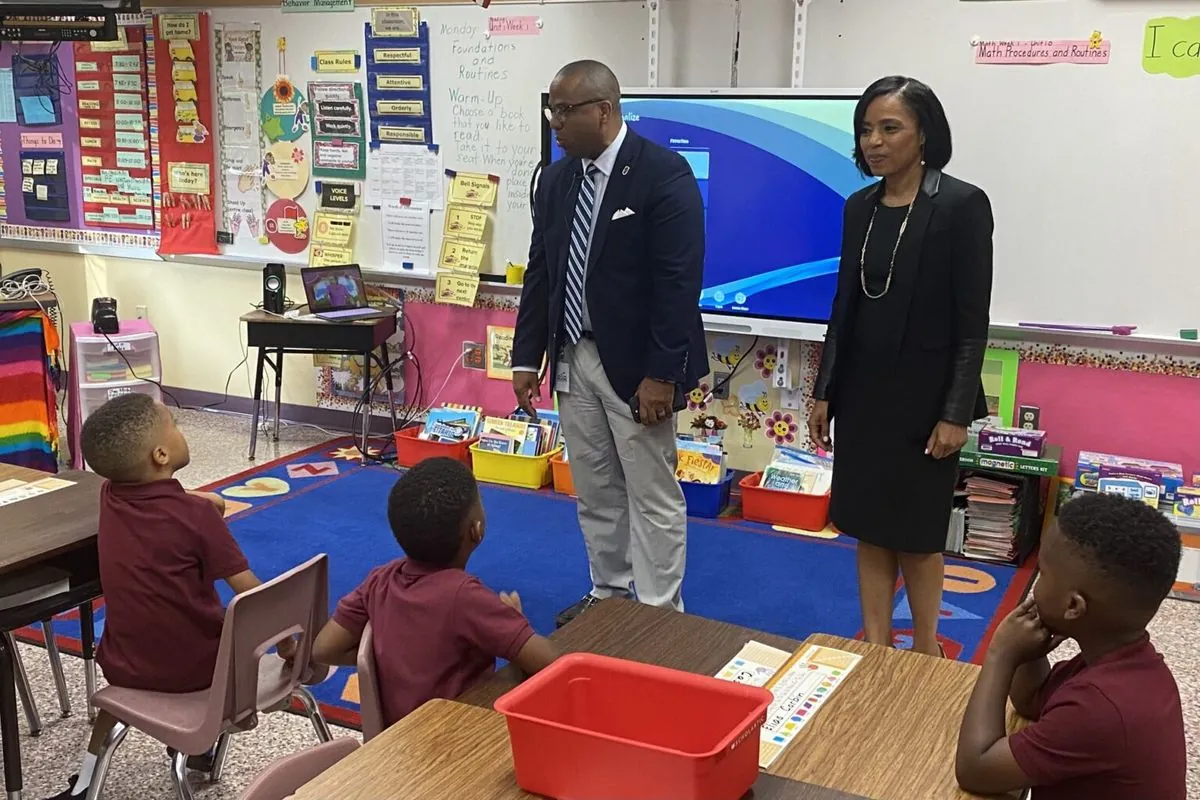The latest assessment results for Maryland's public schools reveal a concerning trend of stagnation in student performance for the 2023-2024 academic year. This development comes after a period of improvement following pandemic-related disruptions, highlighting persistent challenges in one of America's most diverse states.
In response to these results, the Maryland State Board of Education has made the decision to adjust its proficiency goals for the upcoming two years. This revision reflects a more realistic approach to student achievement, while still maintaining ambitious targets. For instance, the benchmark for math proficiency among students in grades three through eight has been reduced from 46% to 37% for the 2025-2026 school year.
Mathematics continues to be a significant hurdle for Maryland learners. The data indicates that only about 24% of students demonstrated proficiency on standardized tests, a marginal increase from 23% in the previous year. English Language Arts proficiency remained relatively stable at 48%.
Joshua Michael, president of the state education board, expressed concern about the flat performance among third graders since 2022, suggesting potential issues in early education. Carey Wright, the state schools superintendent, agreed with this assessment, emphasizing the need to examine education from kindergarten through third grade.
The assessment data, derived from the Maryland Comprehensive Assessment Program (MCAP), reveals stark disparities across socioeconomic and racial lines. In English Language Arts, 65% of White students achieved proficiency, compared to 36% of Black students and 32% of Hispanic and Latino students. It's worth noting that Hispanic and Latino students represent one of the fastest-growing demographic groups in Maryland.
These results align with national trends captured by the National Assessment of Educational Progress, often referred to as "the nation's report card." In 2022, Maryland ranked 40th in fourth-grade reading and 42nd in fourth-grade math compared to other states, underscoring the urgency for improvement.
The Blueprint for Maryland's Future, a multibillion-dollar education law, aims to address these challenges by boosting student achievement, increasing teacher pay, and expanding prekindergarten. However, concerns persist about the long-term funding of these initiatives.
In the Maryland suburbs surrounding Washington D.C., test scores mirrored state trends. Montgomery County Public Schools, the state's largest school system, saw 33% of students proficient in math and 55% in English Language Arts. Prince George's County Public Schools reported 11% proficiency in math and 36% in English Language Arts, with a slight decline in the latter subject.
Carey Wright, who assumed the role of state schools superintendent in July 2024, emphasized the need for urgent action to accelerate student gains across Maryland. She stated, "This is not just about proficiency rates on statewide assessments. A comprehensive approach is needed to meet our goals of ensuring that all students are ready for college, career and life."
Wright has also initiated a review of the state's school performance evaluation system, noting that 76% of Maryland schools have received at least three out of five stars on state report cards, despite low results on state assessments. A task force is expected to provide recommendations for improving this accountability system by the end of 2024.
As Maryland grapples with these educational challenges, the focus remains on implementing effective strategies to boost student achievement and close persistent gaps, ensuring a brighter future for all students in the state.
"There's something wrong in third grade, or there's something wrong before third grade."
